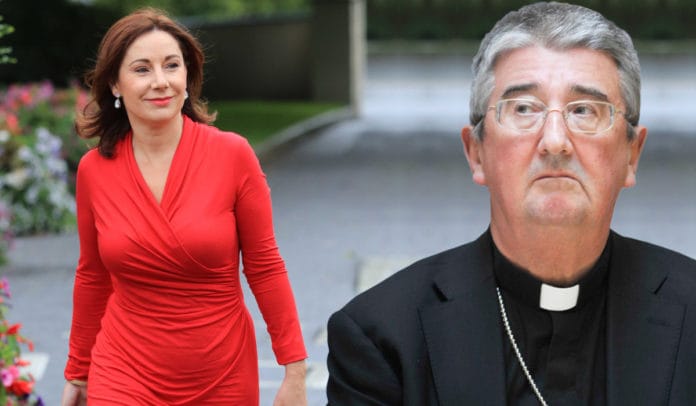Leo Varadkar takes a keen interest in religion. This week he jumped into a row between Josepha Madigan and the Arch Bishop of Dublin, Diarmuid Martin, to suggest that women might become priests. A few weeks previously he launched an attack on socialists because of their attitude to religion. Here is what he said, ‘I believe in the separation of church and state but I do not believe in the socialist ideology, which is to push religion out of the public space and to force people who are religious to be ashamed they have religious conviction and to hide them in a corner.’ He claimed that socialists want to take away funding from religious institutions and ‘turn religious people into pariahs’.
But why does the absence of state funds make someone ‘a pariah’?
There are many religious groups who receive no funding from the Irish state but still claim a right to organise and promote their world view. Jehovah Witnesses, Sikhs, and many new pagan groupings get no money but do not see themselves as pariahs. In his typical sleight of hand style, Varadkar only mentioned a list of Catholic organisations and suggested that without money, these would become ‘pariahs’.
This tells you more about Varadkar than it does about socialists. In his neoliberal mindset, money is what makes you a full member of society and its absence makes you a pariah.
Socialists have no quarrel with people who hold religious views and do not seek to drive them to the margins of society. We can disagree philosophically, but we regard religious people who stand up for the rights of refugees or for social justice as far better allies than non-believers who back Fine Gael’s policy for inequality.
Socialists have marched with religious people against war and against racism. In such battles there is a respect between allies who may come from different standpoints but still fight currents rulers who hypocritically call themselves religious but back imperialist wars.
The organisations that Varadkar listed were charitable entities like Crosscare and the St Vincent de Paul. He wants to maintain a society where many people do not avail of social rights but must rely on charities.
Socialists take the opposite approach. We think refugees should have a right to work so that they are not reliant on charities. We want to provide proper state services for the elderly so that they do not depend on the St Vincent de Paul. All of this means uprooting a tradition that lay at the heart of the Southern state for decades – namely the ‘principle of subsidiarity’ This was a doctrine that was promoted by the arch -conservative, John Charles McQuaid, to suggest that state services should be restricted to a bare minimum so that a space was left for religious run charity organisations to engage in voluntary effort.
A modern day convert to liberalism like Varadkar may scoff at McQuaid but he would like to hold onto an approach that minimises social rights. This is his real difference with socialists.
Socialists want the full separation of church and state. Our schools should not be run by nominees of the local Bishop; children should not to forced to attend religious classes; our hospitals should be dictated to by ‘ethics committees’ who decided what medical operation is acceptable and which is not. Varadkar pretends to be a liberal but has shown no indication to carry through on this genuine separation of church and state. Instead he prefers to play with symbols rather than reality.
Socialists have no desire to turn religious people into pariahs. Religious people should have as much right to promote their view of the world as anyone else. We simply want to ensure there is an equal platform for the different religions and none. That means cutting the links between the Irish state and the institutional power of the Catholic Church.
Despite his later day pretence at liberalism, Varadkar will never do that.
Kieran Allen
